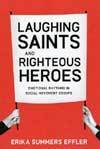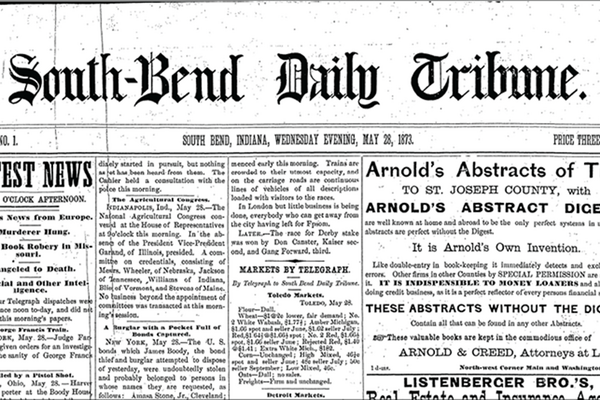
Turning the pages of Assistant Professor Erika Summers-Effler’s new book, Laughing Saints and Righteous Heroes: Emotional Rhythms in Social Movement Groups, it won’t be long before readers notice they are not working their way through a typical sociology text. Summers-Effler’s lively storytelling veers off into three different directions at once, and it’s loaded with stories, comments, and vibrant details from real life that would be quite at home in a piece of narrative journalism.
Tracking the experiences of activists in an anti-death-penalty group and members of a contemporary Catholic Worker house, Laughing Saints can be broken down according to the reader’s specific interest. One may follow the tale of the Catholic Workers; someone else might trace the death-penalty activists; and professional sociologists and scholars can pore over the exhaustive documentation and study citations that Summers-Effler includes in her analysis.
“It’s written sort of like a ‘choose your adventure’ sociology book,” she says. “I wanted to write a book that would be understandable to a general audience but that would still have the sophisticated analysis that would be useful to a professional, academic reader.”
The unique layout of the book is intended to facilitate that kind of diverging flow of reader interest. “It was important to me to produce a manuscript that is accessible to as many people as possible,” Summers-Effler says, “but it was especially important that it would be accessible and useful to the people I studied.”
Summers-Effler knows that many community activists struggle with strategies for the sustainability of their organizations—and her desire to assist them comes out of her personal experience. “I started out as an activist, but I became burned out. So then I turned to social work, but I burned out on that, too.”
As a scholar, Summers-Effler was determined that her research offer practical support to the people who continue in their work on behalf of society’s disenfranchised. “If I couldn’t be a Catholic Worker,” she says, “I wanted to find a way to help.”
Indeed, her experience of social activism burn-out provided the initial inspiration for her research questions: How do activists maintain their personal commitment and energy over the long haul to the issues that first inflame their passion and desire for social change? How do they create sustainable organizational structures that are true to a social vision that at times is deeply at odds with the prevailing culture? Why do such dedicated people risk their emotional, economic, psychological, sometimes even physical well-being on behalf of strangers?
To begin to find answers, Summers-Effler spent three years “shuttling back and forth” and observing the interpersonal and institutional dynamics of a Catholic Worker house and an anti-death-penalty coalition. Some days, she says, the work was as “exciting as watching paint dry”—but other days were enlivened by the outbursts of the sublime and the ridiculous that is part of the daily drama of life in a Catholic Worker house or an exhilarating confrontation over capital punishment that helped explain the fervor of volunteers. “I was there for all of it,” she says.
What she noticed about both groups was a structural dynamic that dealt with organizational turbulence by embracing it. Few places can be as chaotic as a Catholic Worker house, but the house survived its many setbacks and challenges by establishing rituals of reflection that offered spiritual sustenance to its core members, allowing them space to recoup, recover, and recommit to their work.
With its eyes on the prize of abolishing capital punishment, the death-penalty group Summers-Effler studied was less focused on nurturing the emotional and spiritual health of its members and suffered a high turnover because of it, barely maintaining a core group who often felt underappreciated and overworked.
These are the kinds of lessons in sustainability Summers-Effler hopes her activist readership can draw from Laughing Saints, as they struggle to remain committed to their life-changing, if not life-long, commitments to some of society’s thankless tasks and most forgotten people.


